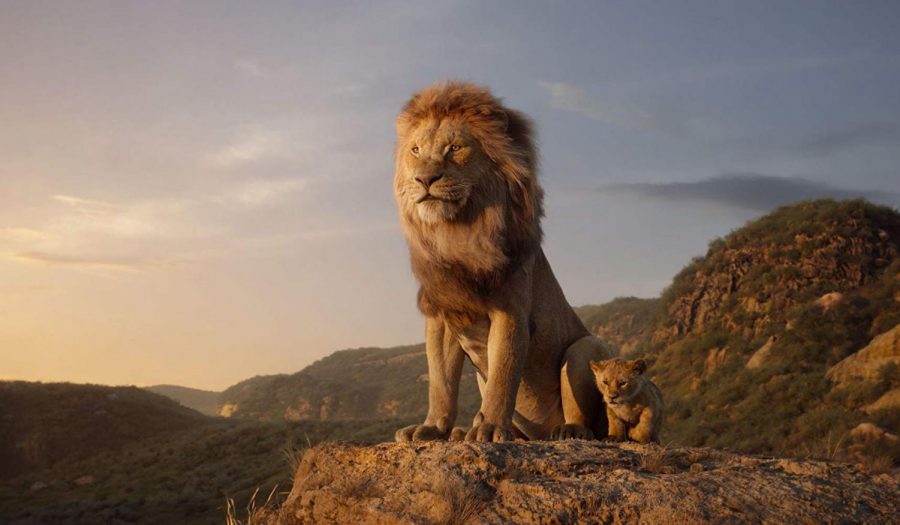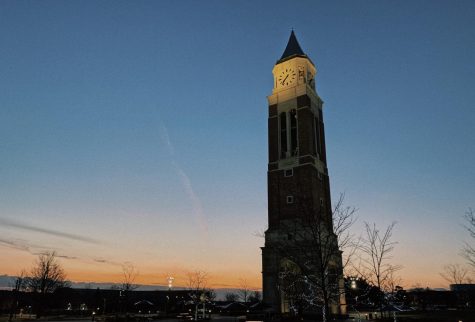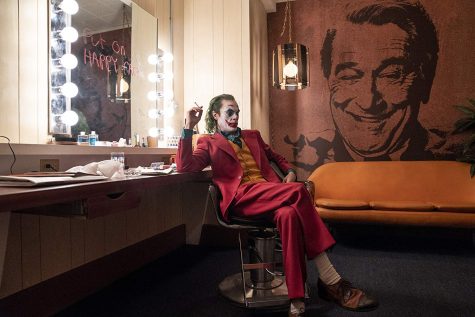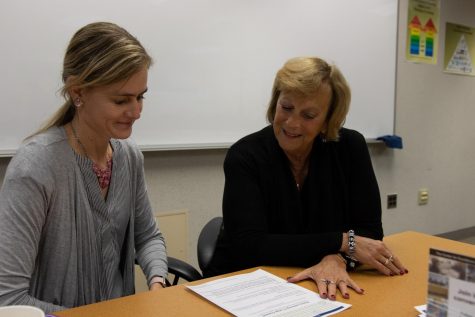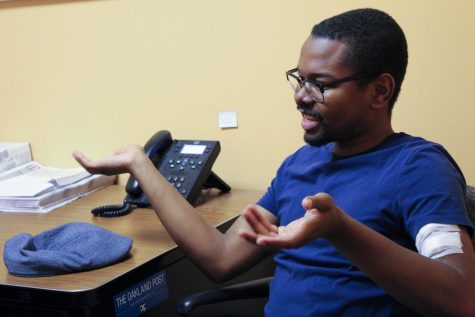‘The Lion King’ — a visual and vocal accomplishment that dies in the shadow of its predecessor
It was only a matter of time before “The Lion King” became the latest cash cow in Disney’s string of live-action adaptations of animated classics. I mean, it checks all the boxes. Beloved film? Check. Acclaimed animation? Check. Iconic music? Check.
That also meant the stakes were at an all-time high. The original 1994 film pretty consistently ranks among the greatest Disney films ever made, and just last summer, it was proven to be the most popular Disney film across the country. Achieving the greatness of the original would be no easy feat, but director Jon Favreau was up for the challenge.
Favreau has a pretty great track record. The “Elf” and two-time “Iron Man” director truly blew me away with his 2016 live-action version of “The Jungle Book” — quite possibly the only film of its kind to surpass the original — so I had no doubt he’d be able to pull it off again with “The Lion King.”
Unfortunately, I was wrong.
For the most part, the faults of the new version are not Favreau’s, or any of the cast members’. The original is simply that good that it cannot be surpassed.
The 2019 remake hardly strays from its source material, for better or for worse. It follows young Simba (JD McCrary), a lion cub and heir to his father Mufasa’s (James Earl Jones) rule over Pride Rock. While Simba “just can’t wait to be king,” his menacing uncle, Scar (Chiwetel Ejiofor), plots to usurp the throne.
Scar joins forces with the evil hyenas, who have been banished from the pridelands, to trap Simba in a stampede, knowing Mufasa will come to his aid. He seizes the opportunity to murder Mufasa, blaming Simba for his death and exiling him from the pridelands.
Simba becomes a fully-fledged adult (voiced by Donald Glover) after befriending wisecracking meerkat Timon (Billy Eichner) and flatulent-yet-lovable warthog Pumbaa (Seth Rogen), who teach him a new viewpoint on life — “Hakuna Matata,” or “no worries.”
But when Simba’s childhood best friend Nala (Beyoncé) pays him a visit, begging him to return and end Scar’s tyrannical reign, he is left with a choice to either embrace his problem-free new lifestyle or face his past and take his rightful place as king.
While Favreau’s take on “The Lion King” is far from perfect, it wildly succeeds in many ways, particularly in regard to casting. Eichner and Rogen are remarkable as Timon and Pumbaa, acting as the new version’s sole indisputable highlight. Likewise, John Oliver is perfect as Zazu, Mufasa’s uptight (literal) wingman. Meanwhile, Jones — the sole returning member of the 1994 film’s cast — brings just as much power to the role of Mufasa with his undeniably iconic vocal resonance.
Glover is fine in the role of Simba, though as his younger counterpart, McCrary’s impressive vocal performance does twice the work and gets half the credit.
The one true disappointment in the casting department — and yes, I’m already securing a restraining order against every member of the BeyHive for this statement — was Beyoncé. Her performance was surprisingly weak, and the character of Nala struggled to break free from her distinct vocal chops.
Similarly, the film as a whole fails to break free from the greatness of the original. It’s a visual and technological achievement, but with only one “real” shot in the film, the overabundance of CGI strips the narrative of both its energy and emotional value. Even Mufasa’s death — the emotional peak of the story — forces McCrary to carry the entire scene as a heartbroken Simba, because his CGI counterpart simply can’t convey that level of emotion.
“The Lion King” is a film I wanted to love and only sort of liked. In spite of the film’s strengths, my immediately noticeable lack of chills during the opening “Circle of Life” sequence set the tone for the whole viewing experience, reminding me that the feeling I had the first time I saw the original film is one that just can’t be replicated.
Rating: 3/5 stars



